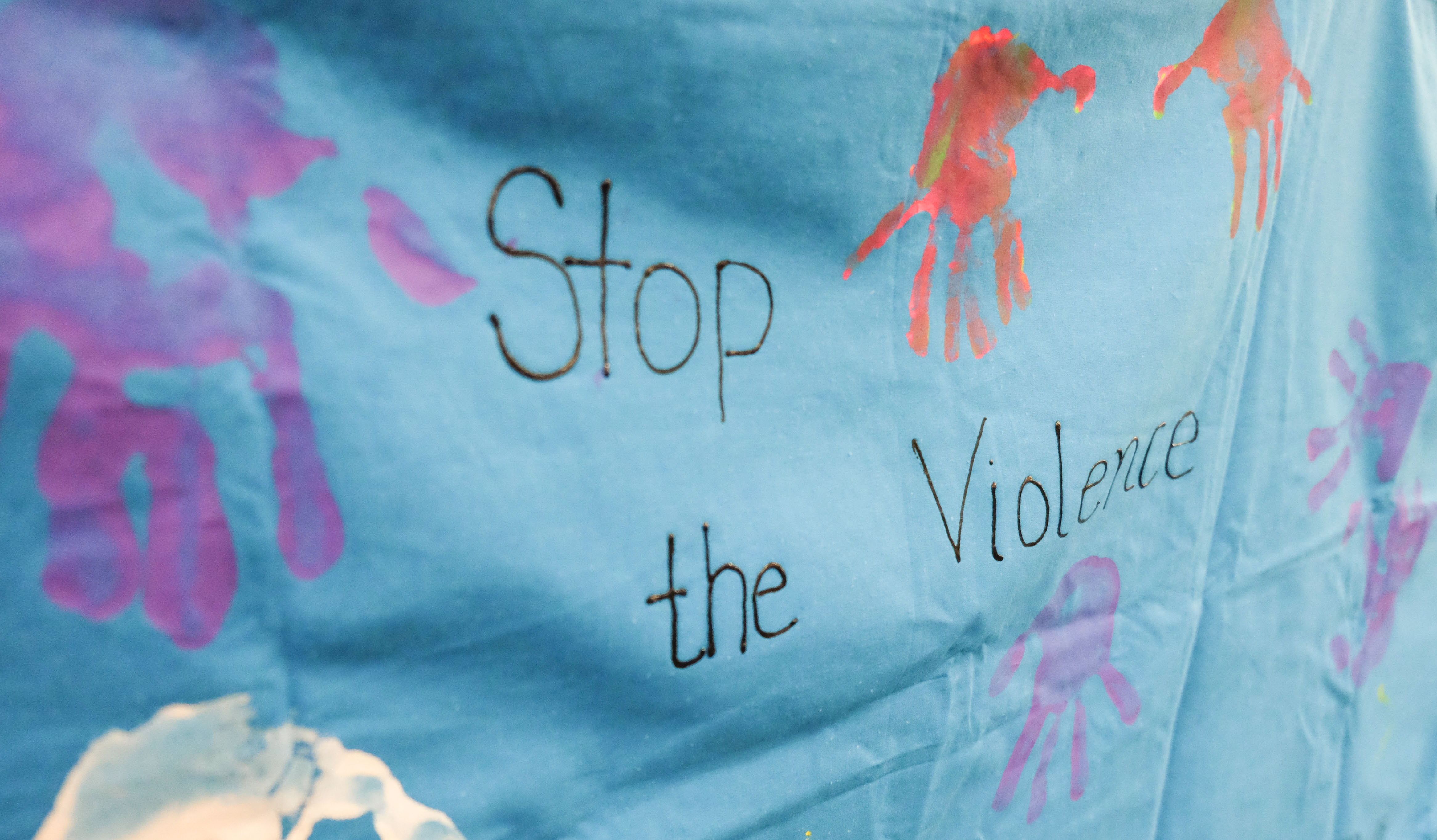USU programs raise awareness for domestic violence
A scream followed by a gong resounded through the Sunburst Lounge of the Taggart Student Center on Tuesday, directing attention to a display of hanging painted t-shirts. The t-shirts reveal countless stories of interpersonal violence survivors, each expressing their hurt through colors, words and images.
Each time the gong resonated — every nine seconds — symbolized how often someone in the United States is a victim of abuse.
But the painted t-shirts are not the only t-shirts that draw attention in the lounge. Grey t-shirts with the words “Stop the violence, Break the silence” are worn by students and staff ready to help anyone who has suffered from abuse.
“Keep those people close to you who are willing to help you. Keep trying and do your best. There are resources out there, there are people that can help you and eventually you can have a better life,” said Stephanie Bagnell, the program coordinator and adviser at the Center for Women and Gender.
October is Domestic Violence Awareness month, and every year, Utah State University presents the Clothesline Project, a visual display of shirts designed by survivors of interpersonal violence.
This year, the Center for Women and Gender teamed with the Sexual Assault and Anti-Violence Information, or SAAVI, office to raise awareness of the impact of violence on campus.
“What we want people to know is that we care about them,” said Bret Nielson, an undergraduate social intern at SAAVI. “We’re here to help. We’re not going to judge them. Come talk to us. Everything’s free, it’s confidential, just come talk to us.”
The SAAVI office offers confidential and free counseling, support and information for anyone at USU who is a survivor of interpersonal violence. This includes domestic violence, dating violence, sexual assault, stalking, rape, hazing and hate crimes.
“It’s when you start to fear instead of feel love and appreciated, that’s the first sign of something might not be okay in this relationship,” said Teisha Greer, an undergraduate social intern for SAVVI. “Nobody should be afraid to go home to their loved ones, because love shouldn’t hurt.”
Statistics regarding sexual offenses rose in 2014, according to the USU Department of Public Safety annual report. In 2014 the total number of reported sexual offenses was 14. The total in 2012 was six, and the total in 2013 was three reported offenses.
Even with the sharp increase in 2014, Nielson said the most under reported crime is domestic violence and sexual assault.
Harmony Davis, the volunteer coordinator for Citizens Against Physical and Sexual Abuse, or CAPSA, explained an important way to help victims who report about their abuse.
“The important thing I think is supporting them,” she said. “If they want to go back, you have to support them. And sometimes that’s hard.”
CAPSA and SAAVI work hand-in-hand to help abuse victims. CAPSA works more with community members in Cache Valley, while Greer said SAAVI works with students on campus.
“You can just listen, and that’s the biggest thing — to have a safe place to go and someone to listen to you,” said SAAVI volunteer Krissy Bellusci, a psychology major.
To raise awareness of CAPSA and SAAVI resources on campus, white and purple signs have been placed around campus drawing awareness to nationwide statistics about all types of interpersonal violence. One of the statistics reads that 1 in 4 women experience domestic violence and 1 in 7 men.
Though women suffer more violence than men, Kurt Kowal, a SAAVI intern majoring in interdisciplinary studies, said hyper masculinity is a hard issue for men to work with when suffering from abuse.
“It’s pretty significant, trying to break down that barrier,” he said.
Students who want to volunteer and raise awareness for all types of interpersonal violence can go online to the SAAVI homepage and help with events like the Red Zone or the Clothesline Project.
“People should be happy. They should be with someone who makes them happy. Whatever works for them, and that’s what we want to do,” said Nielsen.
— ashley.ruth.stilson@aggiemail.usu.edu

